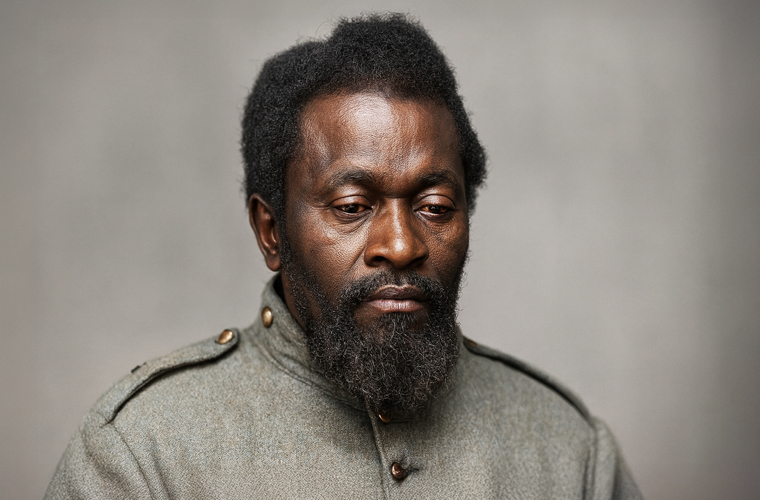Nicholas Biddle, an escaped slave born around 1796 in Delaware, is recognized as the first man to shed blood in the Civil War. Little is known about his early life, but he fled slavery and settled in Pennsylvania, likely adopting the name of Nicholas Biddle, a prominent Philadelphia financier, to avoid recapture. Two accounts explain his journey to Pottsville, PA. One suggests he worked as a servant for the financier Biddle, accompanying him to a celebratory dinner in Mount Carbon, near Pottsville, marking the success of America’s first anthracite-fueled blast furnace, and chose to stay in Pottsville. The other claim is that he moved directly from Delaware to Pottsville, working as a servant at the hotel hosting the same dinner, where he met the financier and took his name.
By 1840, Biddle was living in Pottsville, supporting himself with odd jobs like street vending—selling oysters in winter and ice cream in summer. The 1860 U.S. census lists him as a porter. He formed a close bond with the Washington Artillerists, a local militia company, attending their drills and excursions for two decades. Though African Americans were barred from serving in the militia, the company embraced Biddle, even providing him with a uniform. When the Civil War began with the fall of Fort Sumter on April 15, 1861, President Lincoln called for 75,000 volunteers to serve for three months. The Washington Artillerists, well-prepared, were among the first to respond. On April 17, they left Pottsville by train, with 65-year-old Biddle accompanying them as an aide to Captain James Wren. On April 18, in Harrisburg, the unit, part of five companies totaling 475 men, was sworn into U.S. service—except for Biddle, who was excluded due to his African American heritage.
Tasked with defending Washington, DC, against a rumored Confederate attack, the companies faced a challenge in Baltimore, a pro-Southern city with no continuous rail service. As they marched through to catch their train, a hostile mob of Confederate sympathizers taunted them, throwing bricks and stones. Biddle, a Black man in a Union uniform, was struck in the head by a brick, knocking him to the ground and exposing bone. This severe injury marked him as the first casualty of hostile action in the Civil War, and he carried the scar for life.
President Lincoln, relieved by the companies’ safe arrival in Washington, personally thanked them and gave special recognition to the wounded, including Biddle. After his service, Biddle returned to Pottsville, living in obscurity and scraping by with odd jobs. In 1864, he appeared at the Great Central Fair in Philadelphia, where photos of him in his Washington Artillerist’s uniform, labeled “the first man wounded in the Great American Rebellion,” were sold to raise funds for Union soldiers. Despite this, Biddle fell into poverty, relying on charity to survive. He died destitute in 1876, unable to afford burial costs. Members of the Washington Artillerists and the National Light Infantry each contributed a dollar for a simple headstone, inscribed: “In Memory of Nicholas Biddle, Died Aug. 2, 1876, Aged 80 years. He was the Proud Distinction of Shedding the First Blood in the Late War for the Union, Being Wounded while marching through Baltimore with the First Volunteers from Schuylkill County, 18 April 1861. Erected by his Friends in Pottsville.” Biddle never forgot the traumatic journey through Baltimore. Though proud of his role in the war, he often said he would “go through the infernal regions with the artillery, but would never again go through Baltimore.”

